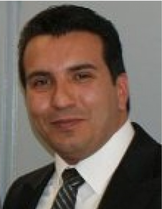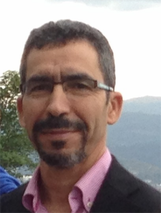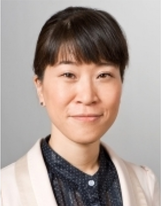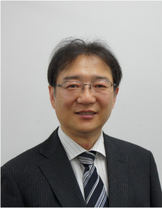Workshop organizers

Dr. Abu-Dakka, Fares J. received a B.Sc. in Mechanical Engineering from the Birzeit University, Palestine, in 2003, M.S. (2006) and Ph.D. (2011) in Mechanical Engineering from the Polytechnic University of Valencia (UPV), Spain. He had a Research Fellowship Grant from the Biomechanical Institute of Valencia between 2008 and 2010. In the period from Oct. 2011 to Aug. 2013 he was a postdoc researcher in The Humanoid and Cognitive Robotics Lab (HCR) at Jožef Stefan Institute, Ljubljana, Slovenia. He was involved on a EU FP7 IntelAct. Since Sept. 2013 to Aug. 2015 he was holding a visiting professor position at the Department of Systems Engineering and Automation at Carlos III University of Madrid, Spain. After that he was involved on PAPREC project as a postdoc researcher in the same department. Since Dec. 2016 to present he is part of Learning & Interaction Group at ADVR, Istituto Italiano di Technologia. His research activities include robot learning, motion planning, robot dynamics and control.

Dr. Abderrahim, Mohamed was graduated in "Optics and Precision Mechanics" from Setif University, Algeria, and received the Ph.D. from the Mechanical Engineering Department of the University of Glasgow, Scotland. Currently, he is an Associate Professor at the department of Systems Engineering and Automation of the Carlos III University of Madrid. During his research career he has collaborated and led various research and development projects funded by industry and national and international institutions. Some of the projects he led include the ASIROV, MEIGA-3, PAPREC projects funded by the MICIN, and acted as a partner in the HANDLE project funded by the EU within the 7th FP. He was involved in the development of climbing robots, space robotic systems, robots for automation in construction and general purpose dexterous robotic manipulations systems for industrial applications. His research interests include robotic manipulation, perception for manipulation, and the use of computer vision and robotics in biomedical application.

Prof. Lee, Dongheui is Associate Professor of Human-centered Assistive Robotics at the TUM Department of Electrical and Computer Engineering. She is also director of a Human-centered assistive robotics group at the German Aerospace Center (DLR). Her research interests include human motion understanding, human robot interaction, machine learning in robotics, and assistive robotics. Prior to her appointment as Associate Professor, she was an Assistant Professor at TUM (2009-2017), Project Assistant Professor at the University of Tokyo (2007-2009), and a research scientist at the Korea Institute of Science and Technology (KIST) (2001-2004). After completing her B.S. (2001) and M.S. (2003) degrees in mechanical engineering at Kyung Hee University, Korea, she went on to obtain a PhD degree from the department of Mechano-Informatics, University of Tokyo, Japan in 2007. She was awarded a Carl von Linde Fellowship at the TUM Institute for Advanced Study (2011) and a Helmholtz professorship prize (2015). She is coordinator of both the euRobotics Topic Group on physical Human Robot Interaction and of the TUM Center of Competence Robotics, Autonomy and Interaction.

Prof. Ikeura, Ryojun received the B.E., M.E., and Ph.D. degrees, all in mechanical engineering from Tohoku University, Sendai, Japan, in 1986, 1988, and 1991, respectively. Currently he is a professor at Division of Mechanical Engineering, Graduate School of Engineering, Mie University, Tsu, Japan. He received a young engineer award and an outstanding paper award from Japan Society of Mechanical Engineers in 1995 and 2004, respectively.
His areas of research include cooperative control of robots and humans, development of power assist device for industry and a enhanced robot for assisting care giver person, analysis and subjective evaluation of human motion for developing human-machine interface.
His areas of research include cooperative control of robots and humans, development of power assist device for industry and a enhanced robot for assisting care giver person, analysis and subjective evaluation of human motion for developing human-machine interface.


